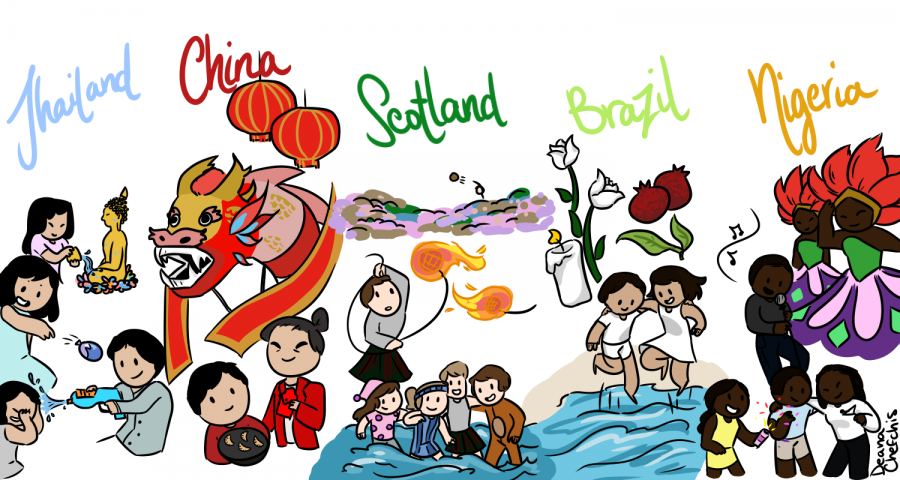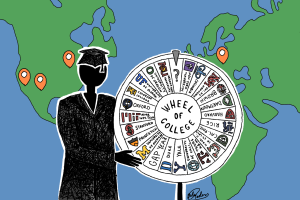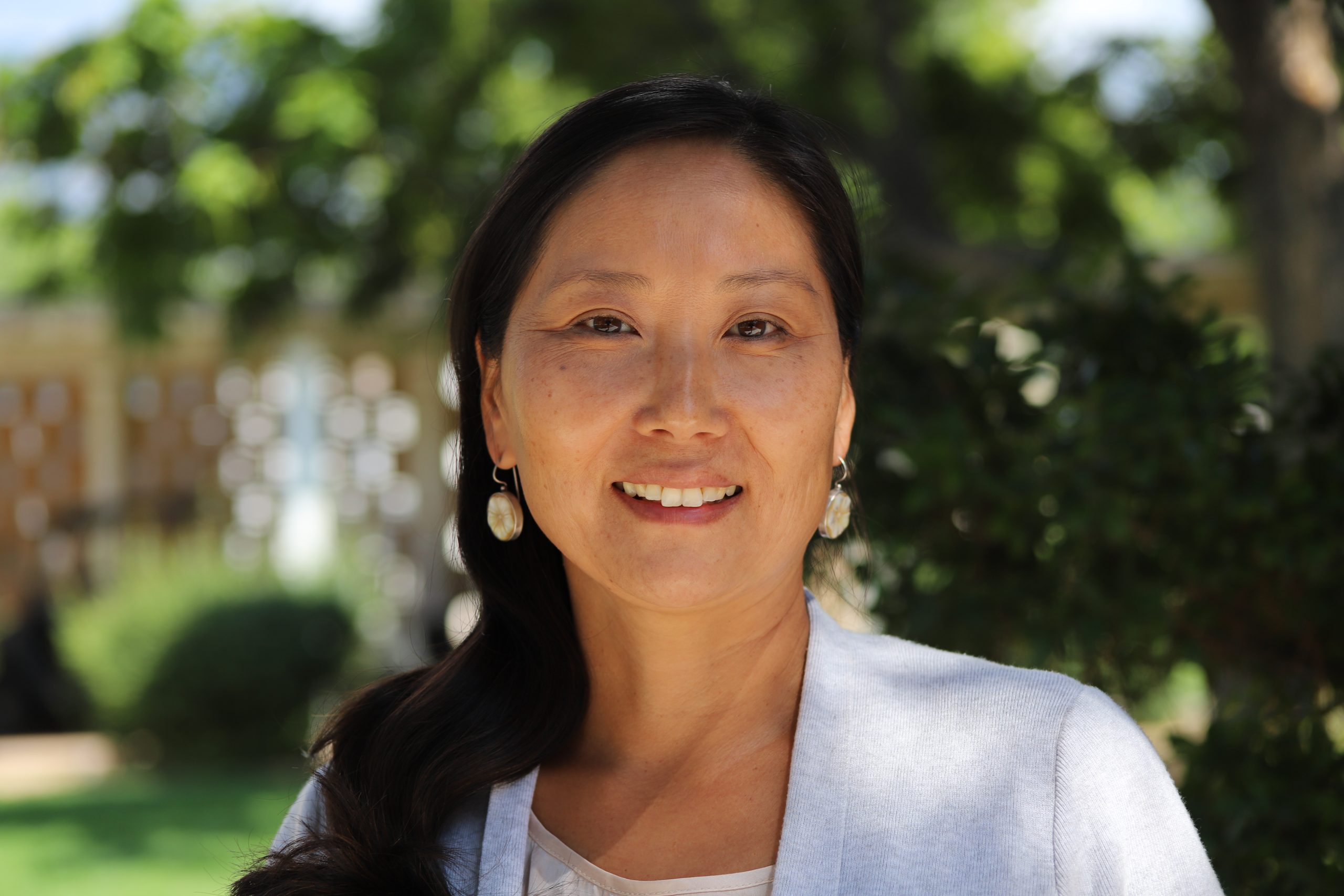New Year’s Around the World
March 11, 2019
With every new year comes another set of traditional celebrations. All around the world, families come together to celebrate and welcome upcoming opportunities and events. Focusing on Thailand, China, Scotland, Brazil, and Nigeria, we will explore each country’s unique New Year’s celebration.
In Thailand, New Year’s festivities take place on April 13 through 15. This period marks the celebration of Songkran, an exuberant water festival. At this time of new beginnings, participants are encouraged to splash each other with water in order to wash away the sorrows of the last year. Many families will also clean their homes, pray at Buddhist temples, and give food to the monks.
On the other hand, people in China celebrate New Year’s by giving out red envelopes full of money to friends and relatives in addition to adorning their streets, houses, and businesses with red, traditionally considered the luckiest color. This year, the celebration takes place on Feb. 5. Additionally, on New Year’s Eve, families will cook and eat a reunion dinner while watching the Spring Festival Gala, a TV program featuring a variety of performances.
A world away from China lies Scotland, and its lively celebration known as Hogmanay. Two of the most well-known traditions of Hogmanay include the First Footing and an event known as the Loony Dook. The First Footing is a practice where friends and family come to each other’s homes; the first person to set foot in another’s house must give an offering or the homeowner will be doomed with bad luck. The Loony Dook, on the other hand, is the practice of sprinting into freezing cold waters to test resistance to the cold temperature.
In Brazil, the New Year’s celebration focuses on clothing, food, and the water goddess, Iemanja. Many celebrants wear white, as the color symbolizes peace, but some dress in colors such as green for health, yellow for money, red for romance, and purple for inspiration. Symbolism also exists in food: lentils are said to promote health while pork and fish denote moving forward. Equally important is the deity Lemanja, who receives gifts of flowers from the people. These offerings are thrown to the sea and, if this gift floats back, it means it has not been accepted. However, if these offerings are accepted, then the participant’s New Years wish will be granted.
Finally, the celebration of the new year in Nigeria consists of a lavish masquerade. At this event, many people will come dressed up ready to dance. Among those dancing are members of different tribes dressed in fish-like costumes. This celebration promotes positivity and peace while also warding off evil spirits. The people who dance never remove their masks, which protects their mind, body, and soul.







